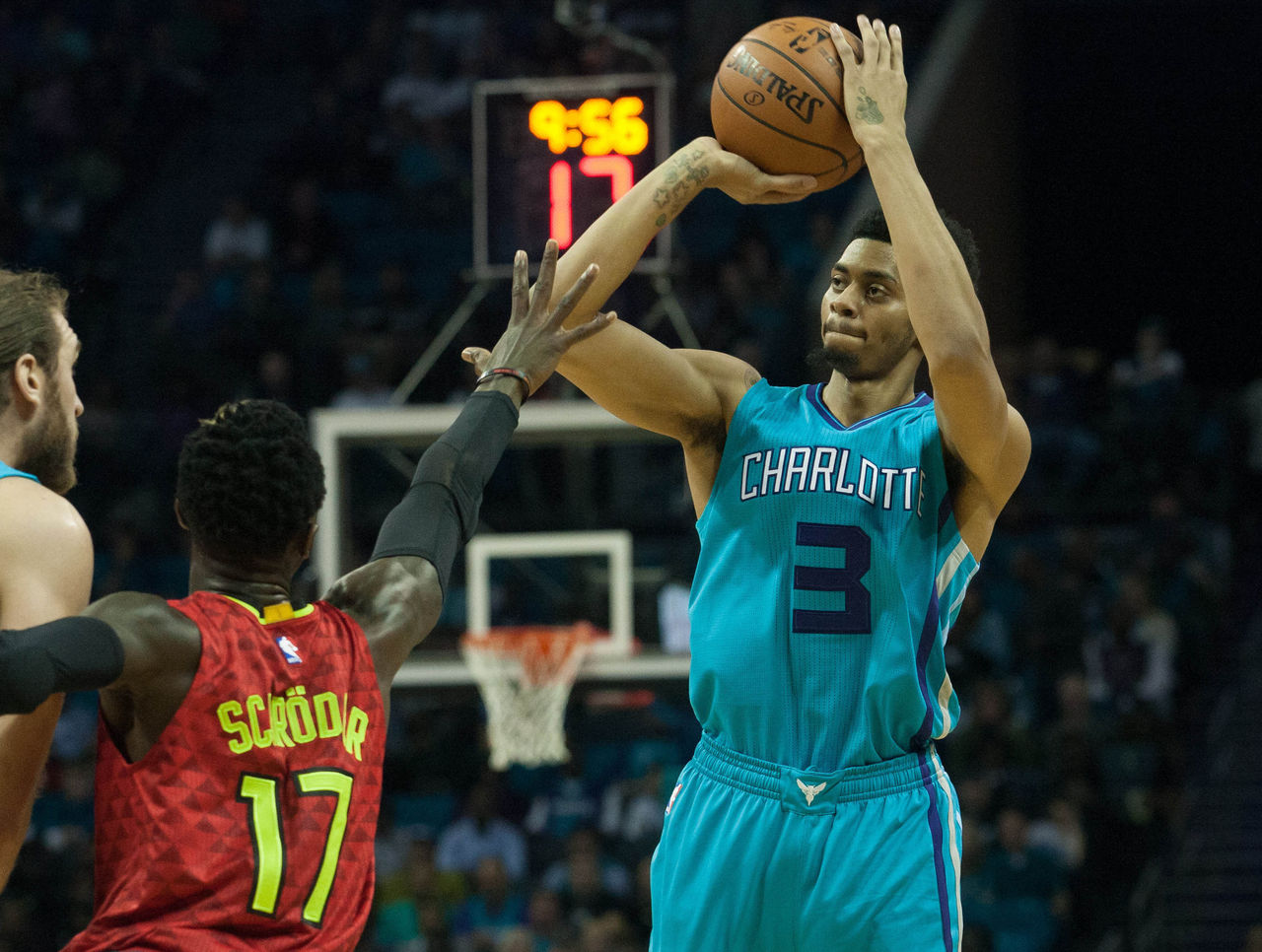The new normal: Terrence Ross, Jeremy Lamb cash in thanks to rising cap
If you're an NBA fan who's been living under a rock for the past year and you weren't privy to what the league's new television deal will do to the salary cap, Monday's proceedings surely let you know.
For as much as superstars' decisions to sign short-term deals in order to cash in on the 2016- and 2017-cap bonanzas was an indication of what's to come, perhaps no two deals were a sign of the times quite like the extensions handed to Terrence Ross and Jeremy Lamb over the past 24 hours.
Ross and Lamb will combine to earn a reported $54 million between the 2016-17 and 2018-19 seasons, with Ross and the Toronto Raptors coming to terms on a three-year, $33-million deal hours after Lamb and the Charlotte Hornets agreed to a three-year, $21-million extension.
Related: Extension deadline roundup; no deals for Beal, Barnes
The figures should be stunning considering the unproven talent of both young wings, but in fact what's truly stunning is how unsurprising the deals seem.
In Ross, the Raptors have an athletic freak who projects as an elite wing defender and shooter - and who has shown glimpses of each skill at various points in his now four-year career - but whose focus and consistency have kept him from establishing himself as an NBA starter.
Through three up-and-down games for Ross thus far in 2015-16, seven Raptors have logged more minutes, and fourth big man Bismack Biyombo has matched Ross' 51 minutes played. At best, the 24-year-old is probably a sixth man for this iteration of the Raptors, and a fringe starter moving forward.
Lamb is even more unproven than Ross, who at least has 125 career starts under his belt and has averaged over 23 minutes per game for his career.

Lamb, selected three spots after Ross in the 2012 draft (9th and 12th), has never averaged 20 minutes per game in a season, has been a fairly average shooter thus far (although he's off to a hot start this season), and like Ross, has been an inconsistent work in progress on defense despite his intriguing ceiling on that end of the floor.
And yet, both Lamb's $7-million-per-year deal and Ross' $11-million-per-year pact are justifiable under the guise of the looming cap boom.
Much like inflation must be taken into account when comparing costs from bygone eras, the salary cap - and the percentage of a player's salary relative to it - must be taken into account more so than how much that player will earn compared to active contracts signed yesteryear.
Consider Lamb for example, whose deal, in percentage-of-cap terms, would be roughly the equivalent of a three-year, $14.3-million contract in a perennial 2015-16 cap world, or about $13.5 million over three years based on last season's cap.
Jeremy Lamb's ext in terms of 14-15 & 15-16 $. Good chance to take for a team that may have diff. getting top FA pic.twitter.com/qFuv0WqHwl
— Jeff Feyerer (@jfey5) November 2, 2015
That's like locking up a talented, developing wing for less than the mid-level exception. The potential reward of such a bargain outweighs the suppressed risk thanks to the skyrocketing cap, particularly for a team whose cap space doesn't carry the same weight as a bigger free agent destination.
In Ross' case, his average salary over the life of his extension will fluctuate between taking up 10.2 to 12.4 percent of the cap. If he doesn't find consistency and remains an enigma into his mid-20s, that'll be a steep price to pay for Masai Ujiri's Raptors. If he lives up to even a fraction of his talent and athleticism, establishing himself as a starting wing or dependable sixth man, it'll be the type of bargain that's hard to fathom when first hearing a player with career averages of 9.2 points and 2.6 rebounds netted $33 million.
Perhaps the best perspective on how much the rising cap has changed the landscape is to compare Ross' extension to the free-agent contract his teammate Kyle Lowry signed when he re-upped in Toronto last summer.
Lowry got $12 million per year coming off an All-Star-caliber (though he wasn't selected) season that saw him average roughly 18 points, seven assists, five rebounds, and a 20-plus PER. While seen as a solid deal for Toronto, it wasn't heralded as an outrageous bargain given the cap climate at the time.
Just 16 months later, Toronto's eighth man with a career 11.5 PER got $11 million per year, and while somewhat steep, it isn't seen as an outrageous overpay.
Welcome to the new NBA.